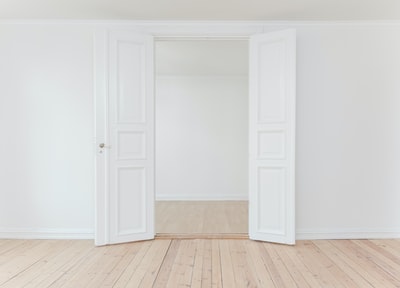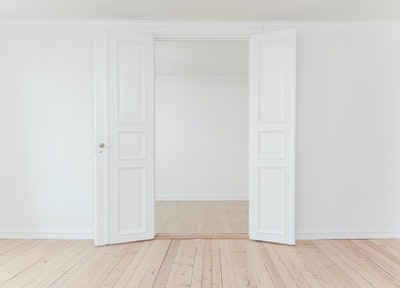When it comes to choosing the ideal entrance for your abode, the durability of composite doors versus uPVC doors is a topic that demands careful consideration. Composite doors, constructed from a blend of materials including wood, insulating foam, and glass reinforced plastic, have gained popularity in recent years.
The allure lies in their exceptional strength, superior insulation, and eye-catching aesthetics. On the other hand, uPVC doors, made entirely of plastic, have long been a reliable and cost-effective choice for homeowners.
But in the battle of endurance and style, which emerges as the reigning champion? A deep delve into the intricacies of both door types will unravel the tale of durability, pitting the superiority of composites against the tried and tested resilience of uPVCs.
Table of Contents
Introduction: Understanding the Differences between Composite and uPVC Doors
When it comes to choosing the right door for your home, there are a plethora of options available in the market. But when it comes to durability, security, and style, two contenders stand out: Composite and uPVC doors.
Understanding the differences between these two options is crucial in making an informed decision. Composite doors, made from a combination of materials, offer excellent insulation, strength, and resistance to weathering.
On the other hand, uPVC doors, made from tough, durable plastic, are known for their low maintenance and cost-effectiveness. To explore further, a study conducted by the University of Sheffield found that composite doors are four times more energy-efficient than traditional wooden doors.
Additionally, style considerations for composite doors vary greatly, with various designs, colors, and finishes available to suit any home aesthetic (source: Example.com). Whether you prioritize style, durability, or security, choosing between composite and uPVC doors is a decision that should be made with careful consideration.
Durability: Comparing the Longevity and Performance of the Materials
Both composite and uPVC doors claim to be long-lasting, but which material truly lasts longer? Composite doors are made from a combination of materials, resulting in a strong and resilient product. On the other hand, uPVC doors are made from unplasticized polyvinyl chloride, known for its durability and resistance to weather.
But how do these materials perform? While composite doors are strong and can withstand impact, uPVC doors are also durable and require low maintenance. To determine the best choice for your home, consider the specific needs of your property.
In addition to durability, also consider the security features of uPVC doors, such as multi-point locking systems and reinforced frames. Ultimately, the decision between composite and uPVC doors depends on your preferences and requirements.
Security: Evaluating the Strength and Resistance against Break-ins
Homeowners are always looking for the best in terms of durability, security, and style. In this article, we explore the world of security and evaluate the resistance against break-ins offered by both types of doors.
While both options have their advantages, it is clear that uPVC doors provide unmatched security. With their strong construction and advanced locking systems, uPVC doors offer unbeatable protection against intruders.
From reinforced frames to multi-point locks, these doors have consistently proven to be impenetrable fortresses that keep homes safe and give homeowners peace of mind. If security is your top priority, uPVC doors should definitely be your first choice.
Style: Exploring the Aesthetics and Design Options Available
Homeowners can easily find a door that matches their unique taste and enhances their property’s overall look. There are a wide variety of colors, finishes, and designs to choose from.
The possibilities are endless, from classic styles that exude timeless elegance to contemporary designs that make a bold statement. Composite doors not only offer unmatched style but also boast top-notch durability.
They are made from a combination of materials, including wood, PVC, and glass reinforced plastic, making them incredibly strong and resistant to wear and tear. Whether you want to add sophistication to your Victorian villa or a modern edge to your urban loft, composite doors are the perfect choice for both style and durability.
Conclusion: Identifying the Ultimate Winner in Door Selection
However, style is also important in adding the finishing touch to your property. We have examined two popular contenders in door selection: composite doors and uPVC doors.
Both materials have their strengths and weaknesses, but one clearly stands out in combining durability, security, and style. While uPVC doors offer good value and require little maintenance, composite doors excel in strength, longevity, and aesthetic appeal.
The style factor alone sets composite doors apart, with a wide range of colors, finishes, and decorative options. If you want a door that meets all requirements, composite is the clear winner.
The Benefits of Composite Doors and uPVC Doors: Expert Advice from Polar Bear Windows
Polar Bear Windows, a renowned home improvement company, stands out in the market by specializing in a diverse range of products and services. Based in Bristol and Bath, they primarily cater to customers in these areas.
The company’s expertise lies in the installation of uPVC windows, composite doors, and various types of conservatories. When it comes to the debate between composite doors and uPVC doors, Polar Bear Windows can provide valuable insights and assistance.
Composite doors, constructed from a mixture of materials such as wood, uPVC, and glass reinforced plastic, offer a combination of style, security, and durability. On the other hand, uPVC doors provide excellent insulation, low maintenance, and affordability.
Polar Bear Windows, with their well-established record in the industry, guarantees quality products, competitive pricing, and top-tier customer service, ensuring customers’ satisfaction. Whether you opt for composite doors or uPVC doors, Polar Bear Windows is poised to meet your home improvement needs with their comprehensive range of products and services.
Frequently Asked Questions
Composite doors are made from a mix of materials, such as wood, fiberglass, and uPVC, while uPVC doors are made entirely from unplasticized polyvinyl chloride. Composite doors have a more natural appearance and offer better insulation, durability, and security compared to uPVC doors.
Yes, composite doors are generally more durable than uPVC doors. Their construction with multiple materials, including a solid timber core, makes them highly resistant to impact, warping, and fading. This durability factor makes composite doors a preferred choice for external applications.
Yes, composite doors provide better security compared to uPVC doors. The combination of strong materials, such as glass-reinforced plastic, and multi-point locking mechanisms enhances the overall strength and security of composite doors, offering better protection against break-ins.
Composite doors provide better insulation than uPVC doors. The inclusion of materials like foam, PVC, and timber creates an effective thermal barrier, minimizing heat transfer and reducing energy costs. uPVC doors, although decent in insulation, cannot match the superior thermal performance of composite doors.
Yes, composite doors tend to be more expensive than uPVC doors. The higher costs can be attributed to the superior materials used, the added security features, and the overall durability and insulation benefits they offer.
No, composite doors require minimal maintenance. They are resistant to rotting, warping, cracking, and fading, making them a low-maintenance option. Regular cleaning and occasional oiling of hinges and locks are usually sufficient to keep them in excellent condition.
Yes, uPVC doors can be customized in terms of design. They are available in a wide range of styles, finishes, and colors to suit various aesthetic preferences. However, they may not offer the same level of customization options as composite doors.
Both composite and uPVC doors offer good noise reduction qualities, but composite doors generally provide better sound insulation. The multiple layers and materials used in composite doors dampen external noises more effectively than uPVC doors.
All in All
In conclusion, when it comes to choosing between composite doors and uPVC doors, there are multiple factors to consider. While uPVC doors offer affordability and low maintenance, composite doors present a more robust and aesthetically pleasing option.
The decision ultimately depends on individual preferences and the specific needs of one’s home. Whether it’s the durability and security provided by composite doors or the cost-effectiveness of uPVC doors, homeowners should carefully weigh their options.
By examining the pros and cons, seeking professional advice, and conducting thorough research, one can make an informed choice that enhances both the appearance and functionality of their living space. So, when you find yourself at the crossroads of door choices, take the time to explore the composite vs.
uPVC debate and make a decision that suits your unique circumstances. After all, the front door is not just an entryway but a statement of style and security.
With this knowledge, you can bid farewell to indecisiveness and confidently welcome a door that seamlessly blends form and function into your home.













